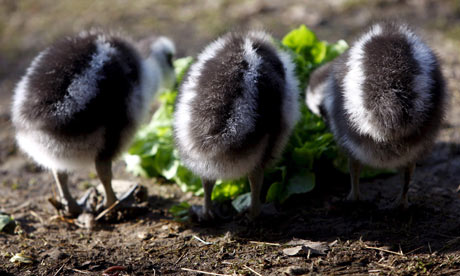
The following is among the most useful, and interesting, pieces of advice I've had out of a cookbook for some time. "When you have accidentally added washing up liquid to your salad instead of oil, do not attempt to wash it out and serve it to your children. They will be able to tell the difference. Even the teenagers."
It comes, along with 999 other tips, from Aleksandra Mir's The How Not To Cook Book, a book that tells you the wrong way to go about things in the kitchen. Now that I've seen it, an anti-cookbook seems a brilliant and obvious idea in a world somewhat overstocked with books that tell you how to cook. But The How Not To Cookbook is an artwork, a limited edition sold at a pricey £30, and currently available only off the shelf in a small art gallery, the Collective, in Edinburgh's Old Town.
Aleksandra Mir is a New York-based installation artist who likes to inflate lifesize planes and position them beside airports in what she calls a permanent act of landing. There was a famous video work entitled First Woman on the Moon. For How Not To Cook she and the Collective gallery sought tips from 1000 cooks around the world, from friends and through a website. To ensure they got contributions from chefs both digital and analogue, they canvassed old people's homes and community centres. One of gallery coordinator Jenny Richards's favourites, an old lady's advice about bananas and the application of excessive ingenuity, comes from these interviews. If a war interrupts your shopping you may find yourself attempting to make banana fritters out of boiled parsnips and banana essence.
Richards says that the book is "an act of rebellion against today's food culture", and that anyone bored with prescriptive, patronising, or downright bad celebrity chefs and their recipes should get a copy. I like the fact that the book doesn't attempt to say what's wrong or right. It's just a record of what people believe about cooking, such as "do not make mayonnaise when you have your period. It will go bad."
Often the tips contradict each other – there are many conflicting beliefs about the uses of salt, oil and a spoon while boiling pasta. Because, after all, one of the problems with our food-obsessed, cookery-shy culture is that everyone is afraid of not being able to do it like Gordon or Delia. But who's to say there's right and wrong in cooking? It ain't chemistry. Except when it is, of course (see Mir's section on explosions).
Many of the best tips in How Not To Cook bear a whiff of bitter – sometimes very bitter - experience:
"Never season a salad while holding a cigarette.""Do not tell your grandmother you liked something she cooked for you when actually you didn't. She'll make it for you over and over again."
"While boiling pasta do not start two parallel chats on Facebook."
"Do not choke the chicken having chopped hot peppers."
"Never follow online recipes. You cannot trust the person writing them."
"Do not allow your husband to bury your failed Christmas pudding in the garden, otherwise this will become a family legend and they will doubt your cooking prowess till the day you die."
"Do not soak bread in milk to make it soft and add raw tomatoes and oil on top like they do in Rome. This is like dog food to the Sicilians."
"Do not forget to invite guests to your dinner party."
"Never start cooking before you've had a glass of wine but do not start cooking after you've had your second glass."
Do you have any tips from your own experience? They could be cathartic. As the Collective Gallery's blurb for the book puts it: "We may even be creating an original and subversive form of art, rather than simply be aspiring to obvious and repetitive results." Worth thinking of next time the mayonnaise separates. Again.

